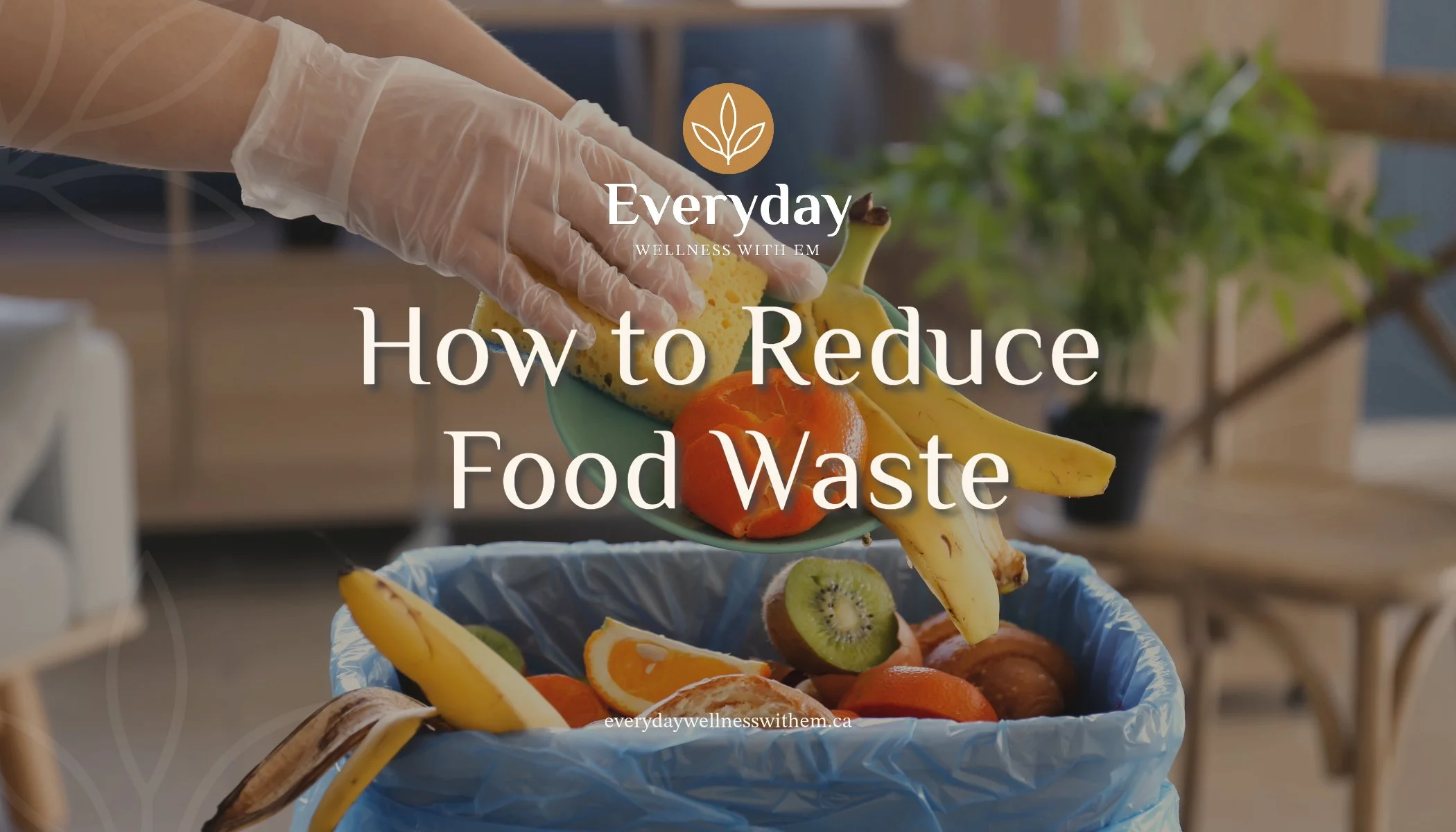How to Reduce Food Waste
How to Reduce Food Waste
Food waste has become a pressing issue, threatening both our environment and our well-being. Every year, roughly one-third of all food produced globally goes to waste, leaving a devastating impact on our planet.
But why does food waste matter? It's a problem that stretches far beyond the moral implications of hunger and scarcity. When food is wasted, not only do we squander the precious resources that went into producing it—water, energy, and land—but we also contribute to the release of harmful greenhouse gases. As food decomposes in landfills, it emits methane, a potent greenhouse gas that accelerates climate change.
However, tackling food waste isn't just about reducing environmental harm; it's also about embracing a more sustainable and holistic approach to nutrition. When we waste food, we not only discard nutrients that could nourish our bodies, but we also miss out on the opportunity to create delicious and nutritious meals.
10 Ways to Reduce Food Waste
1. Plan Your Meals:
Take some time each week to plan your meals, considering the ingredients you already have on hand. This ensures that you buy only what you need, reducing the chances of excess food spoiling unused in your pantry.
2. Shop Smartly:
Before heading to the grocery store, make a shopping list based on your meal plan. Stick to it and avoid impulse purchases. By doing so, you'll prevent unnecessary food items from piling up and eventually going to waste.
3. Get Creative with Leftovers:
Don't let leftovers sit forgotten in the fridge. Embrace your culinary skills and transform them into new and delicious dishes. Leftover vegetables can be turned into soups or stir-fries, while yesterday's dinner can become an exciting lunch wrap or a flavorful topping for a salad.
4. Embrace Proper Storage Practices:
Familiarize yourself with proper food storage techniques. Keep perishables like fruits and vegetables in the fridge to extend their freshness. Use airtight containers to store leftovers, which helps maintain their quality and prevents spoilage.
5. Implement First-In, First-Out:
When organizing your pantry and fridge, adopt the first-in, first-out rule. Place newly bought groceries at the back and move older items to the front. This way, you'll consume food before it expires, minimizing waste.
6. Master Portion Control:
Be mindful of portion sizes when cooking and serving meals. Start with smaller portions and allow seconds if needed. Avoid overfilling your plate, as leftover food may not always be eaten and could go to waste.
7. Consider Preservation Techniques:
Extend the shelf life of fruits and vegetables by freezing or canning them. Research different preservation methods to find the most suitable ones for preserving your favourite foods.
8. Donate Excess Food:
Instead of discarding unused food, consider donating it to local food banks or organizations that assist those in need. By doing so, you not only reduce waste but also help alleviate hunger in your community.
9. Compost:
Composting is an eco-friendly way to dispose of food scraps and other organic waste. You can use the nutrient-rich compost produced to nourish your own garden or give it to local farmers or community gardens.
10. Spread Awareness:
Share your knowledge and inspire others to join the initiative against food waste. Encourage friends, family, and community members to adopt these practices, as collective effort leads to a greater impact.
Reducing food waste is a powerful step towards a more sustainable future.
By implementing these simple strategies,
we can significantly minimize waste,
preserve our precious resources,
and contribute to a healthier and more nourished world
for generations to come.



